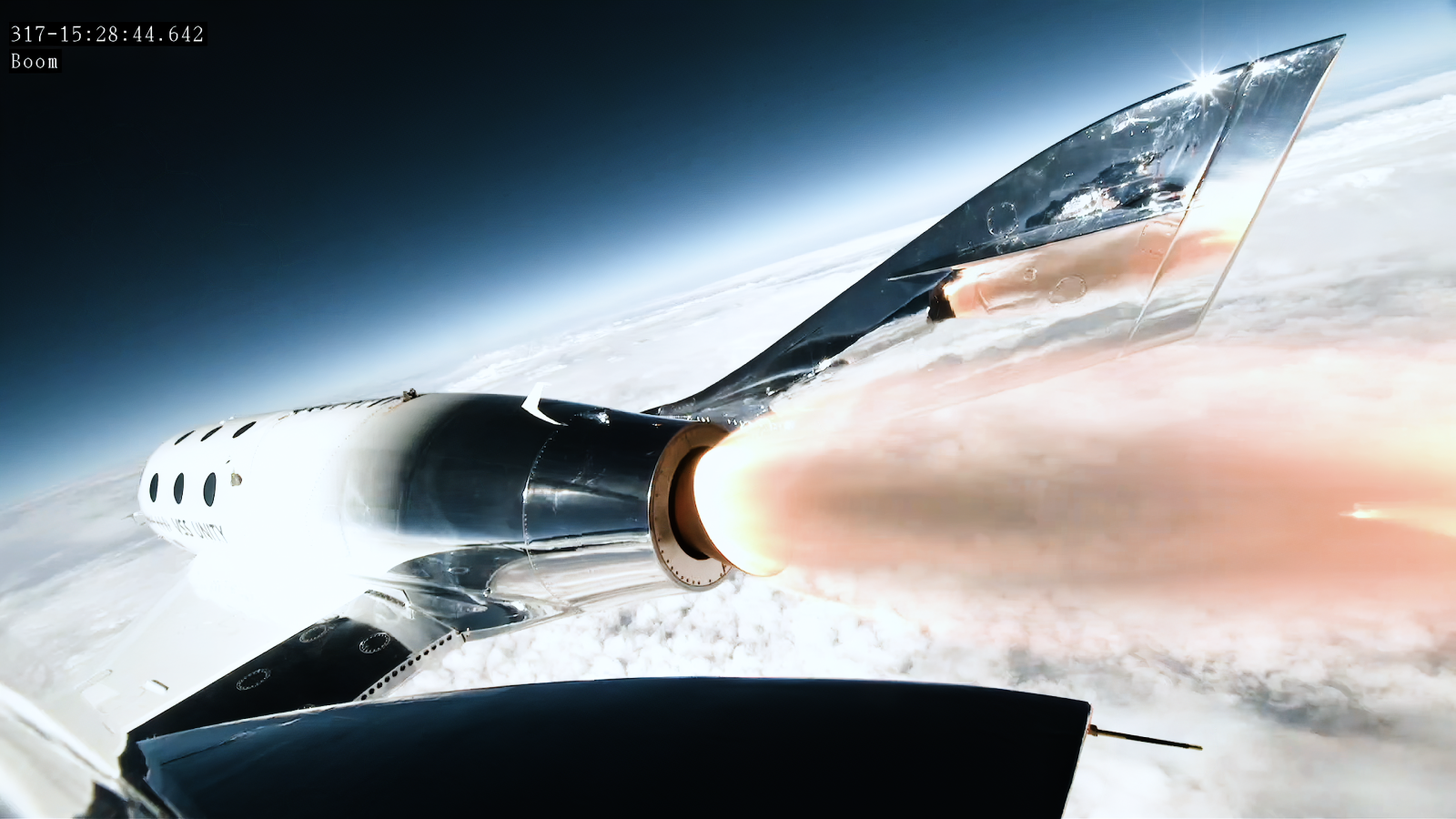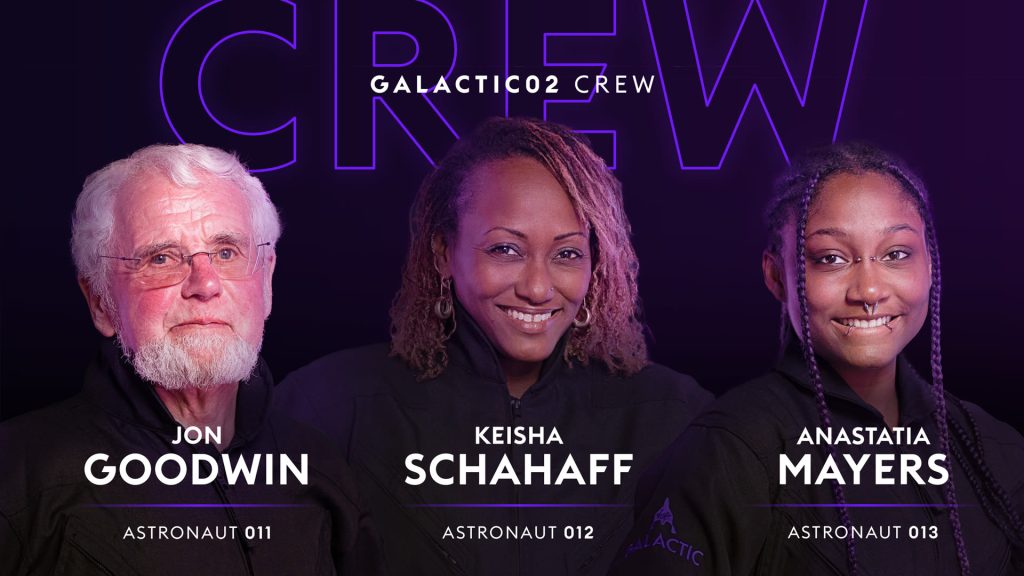
Last Thursday, Virgin Galactic successfully launched its first group of commercial customers into space aboard its SpaceShipTwo suborbital spaceplane, named VSS Unity. This achievement occurred approximately one month after its previous flight. With Virgin Galactic now a significant player in the field, the question arises: Can they outpace Blue Origin in the realm of space tourism?
Virgin Galactic picks up flight cadence
Virgin Galactic has conducted three spaceflights this year, with its fourth mission scheduled for the upcoming month. This flight count aligns with the number of flights completed by Blue Origin last year before encountering an in-flight failure, also totaling three. Thus, when Blue Origin manages to resume its flight operations, it seems that Virgin Galactic will be capable of maintaining a comparable flight cadence.
The most recent flight, designated Galactic 02, carried its first commercial customers and ticket holders. Among them was Jon Goodwin, a former Olympian from the United Kingdom, who secured his ticket at a time when the cost was $250,000 per ticket.
The remaining two passengers were a mother-daughter pair from Antigua and Barbuda, Keisha Schahaff and Anastatia Mayers. Schahaff won a sweepstake opportunity to fly aboard VSS Unity, and she chose to share the experience with her daughter. These three passengers were accompanied on the spaceflight by Virgin Galactic team members Beth Moses, Kelly Latimer, and CJ Sturckow.

Galactic 02’s flight proceeded without a hitch, offering the tourists several minutes of weightlessness and breathtaking vistas of Earth. In contrast to Galactic 01, which focused on scientific pursuits for the three Italian researchers on board, Galactic 02 was characterized by the enjoyment of Goodwin, Schahaff, and Mayers during their time in zero gravity.
The next scheduled flight for Virgin Galactic, Galactic 03, is planned for September. While the specifics of the crew and mission objectives have yet to be disclosed by the company, they face the task of accommodating numerous ticket holders eager to experience suborbital space travel.
Is there room for two commercial options?
While from a distance it may appear that Blue Origin and Virgin Galactic are engaged in nearly identical endeavors with minor differences in presentation, there are crucial distinctions beyond their altitude achievements and vehicle designs that set their business models apart.
Primarily, Blue Origin employs a simpler system within the realm of rocket science. New Shepard lacks the complexity of a carrier aircraft, rotating wings, the need for human pilots, or extended runways. In essence, it functions as a rocket akin to those used by SpaceX, Rocket Lab, and ULA for launches, albeit without achieving orbit.
Conversely, Virgin Galactic offers more spacious accommodations within its spaceplane, affording customers the opportunity to experience zero gravity or conduct experiments. Notably, Virgin Galactic has successfully demonstrated its vehicle’s capability to support both automated and human-initiated experiments, a distinction that Blue Origin has yet to showcase. Additionally, it is worth noting that, based on available information, Virgin Galactic presents a more cost-effective option compared to New Shepard.
While mainstream media often portrays these companies as providing joyride experiences exclusively for the ultra-wealthy, it is important to recognize that their endeavors also open avenues for high-altitude research. The expense associated with flying a researcher on either of these systems is significantly lower than sending them or their experiments to the International Space Station.
In recent years, Blue Origin had been the prominent contender, achieving frequent launches. However, the company’s momentum waned following an in-flight failure during its previous flight. Currently, Virgin Galactic has seized the spotlight with an impressive cadence of flights, occurring nearly monthly, as it diligently addresses its backlog of ticket holders.
Both companies enjoy a period of coexistence, catering to their respective clientele. Nonetheless, as the pool of ultra-wealthy thrill-seekers eventually diminishes, Virgin Galactic’s cost-effectiveness and researcher-friendly cabin could potentially propel it to a leadership position in the field, outpacing the competition.
FTC: We use income earning auto affiliate links. More.




Comments